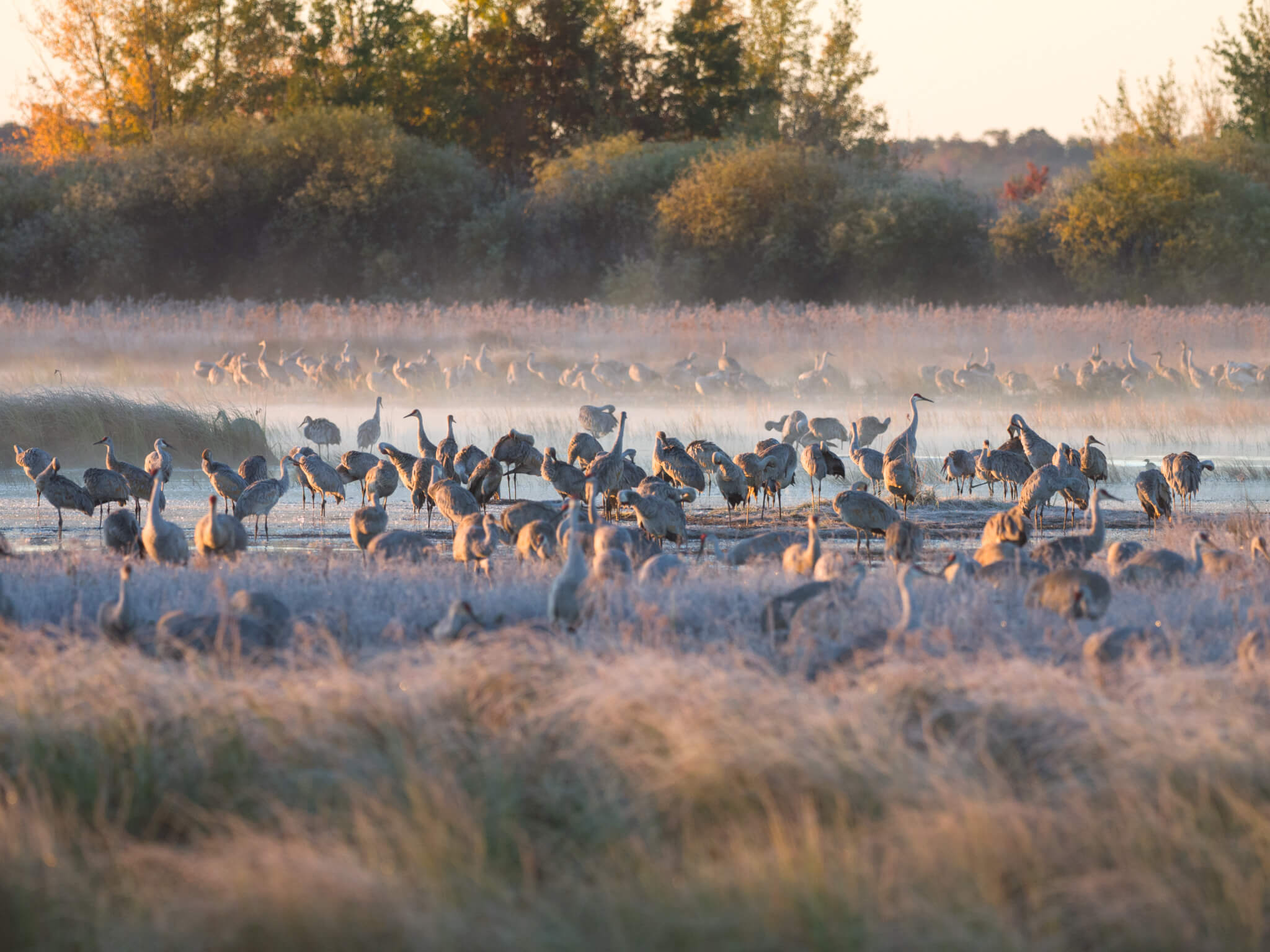The Pelican River Forest in northern Wisconsin is one of the largest intact forests in the state. The Conservation Fund is trying to preserve the 70,000 acres of forestland, but has hit a roadblock after the anonymous objection of a state grant by a member of the Joint Finance Committee (JFC).
Katie Thoresen of WXPR breaks down the story, beginning with The Conservation Fund’s interest and involvement in protecting the forest to the hold up of Knowles-Nelson Stewardship Program funds that have already been approved.
In 2021, The Conservation Fund purchased the land from the Forestland Group with plans to protect the forest through conservation easements and continue sustainably logging the property. The project would provide opportunities for recreation as well as sequester enormous amount of carbon from the atmosphere.
“The great thing about the carbon market and doing a carbon project is you’re still cutting. This property itself will store 19 million metric tons of CO2 equivalent. That’s like taking four million cars off the road,” said Clint Miller, Central Midwest Regional Director for The Conservation Fund.
Since purchasing the property, The Conservation Fund initially secured easements on 12,000 acres and has been working with the Wisconsin Department of Natural Resources (DNR) to secure easements for the remaining 56,000 acres.
In October 2022, the Wisconsin DNR’s board approved the use Knowles-Nelson funds for about $4 million, a fraction of the total amount of $15.5 million to secure easements on the remaining acreage. Over $10 million is to be financed by a national forest legacy grant and $600,000 has been donated by the National Fish and Wildlife Foundation.
The Knowles-Nelson funds are now tied up in the Joint Finance Committee, which is required to review grants that exceed $250,000. By state law, the finance committee has 14 days to respond to the DNR with its decision to approve the funds.
The JFC received notice on November 1 and had until November 18 to review the project. On November 21, the DNR’s Secretary Preston Cole received a letter from the JFC chairs stating that an objection had been raised and the request was not approved at this time.
“All we know is that a member of the finance committee objected to the project. The public has no idea who objected to the project, no idea why they objected to the project, and we have no sense of what’s going to be done about that,” said Charles Carlin, Director of Strategic Initiatives for Gathering Waters: Wisconsin’s Alliance for Land Trusts.
Carlin noted that the JFC is breaking state law by not scheduling a meeting to review the proposal and the process lacks transparency in government.
What is perhaps most frustrating is that this isn’t the first time a Knowles-Nelson project has been blocked by the Joint Finance Committee. In fact, it’s happened many times before.
According to a letter from DNR Secretary Preston Cole to the JFC in March 2022, six proposed Knowles-Nelson projects were awaiting the committee’s approval between February 2020 and June 2021. These projects were stalled by an anonymous objection of one committee member and the refusal of the committee to schedule a meeting to review each project.
In response to the committee leaving the projects indefinitely stalled, Governor Tony Evers released $4.5 million of American Rescue Plan Act money in August 2022 to fund five of the projects listed in Cole’s letter.
While conservationists cheered to see these projects move forward, there is still the larger issue of what’s happening with the Joint Finance Committee, the Knowles Nelson Stewardship Program, and ultimately the future of conservation in Wisconsin.
“Not knowing when a grant might be approved or might not is having a really chilling effect on the program because so many organizations just say, ‘We can’t deal with this crazy process.’ That means important conservation projects simply aren’t getting proposed. [They] aren’t even coming before the state to be considered because so many groups are just so frustrated with the process,” said Carlin.
Until the Joint Finance Committee acts, the future of the Pelican River Forest remains in limbo.
Featured image by Michael Janke, 2016.
